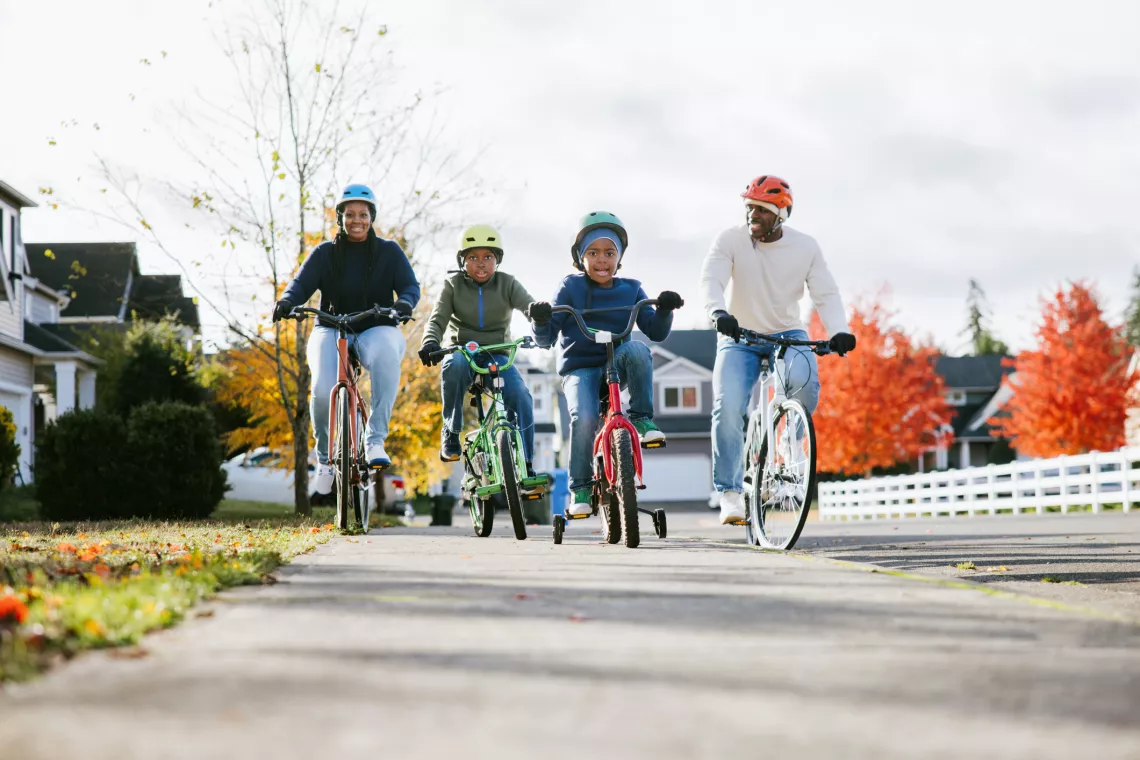Reducing the Need to Drive
Reducing the Need to Drive
Sierra Club works to reduce our car dependence by advocating for reliable public transit, safe infrastructure for walking and biking, and more housing choices near where people work, learn, and play.
Clean, Reliable, Accessible Public Transit: Access to transit is a human right. We work to connect communities with excellent transit service – everything from rural bus routes, to urban subways, to intercity rail – that reduces pollution and that people can count on to get where they need to go. That means calling for more funding, just fare policies, and a transition to zero-emission transit fleets.
We’re proud to join labor partners and transit advocates in celebrating Transit Equity Day each year, demanding better transit and mobility justice for all. And we’re working with Sierra Club’s Outdoors for All Campaign on a Transit to Trails campaign, so that more people can access the outdoors without needing to drive a car.
Expanding Passenger and Freight Rail: A team of Sierra Club advocates and volunteers focused on improving rail in the U.S. released a rail report, outlining a series of recommendations to improve both passenger and freight rail, as well as transition to rail electrification. The report is a resource for policymakers, government officials, and advocates on how investing in rail can help create good jobs, provide equitable mobility, reduce traffic congestion, and cut climate pollution.
Fighting Freeway Expansion: We use every policy and legal tool at our disposal to fight the worst highway expansion projects, which drive sprawl, pollution, and climate change. Our goal is to shift investments away from more pavement to basic maintenance, good transit, and better infrastructure for people walking, biking, or using transit.

Safer Streets for Everyone: Instead of making progress toward Vision Zero – eliminating traffic injuries and serious injuries from our transportation system – the U.S. is moving in the wrong direction. Pedestrians and our most vulnerable communities are disproportionately paying the price for a transportation system that prioritizes cars at every turn.
To reverse this trend, we’re advocating for policies that prioritize safety and mobility for people walking, biking, and using transit or other forms of active transportation.
Stopping Sprawl with Dense Housing: Our housing and climate crises are interconnected. In many parts of the country, a shortage of housing choices near jobs, schools, and amenities makes housing too expensive, especially for low and middle-income households. This pushes growth outward, threatening our forests and farmland with pavement and pollution while forcing people into longer car commutes.
Sierra Club supports local, state, and federal policies that promote infill housing, affordability, and dense, walkable communities. This means more affordable housing choices, less driving and pollution, and better protection for open spaces.
Examples of Our Impact
Federal Action: Working in a broad coalition of transit, environmental, and active transportation advocates, Sierra Club helped successfully advocate for a new U.S. Department of Transportation rule requiring state Departments of Transportation and Metropolitan Planning Organizations to establish performance measures for reducing greenhouse gas emission from their transportation plans and programs.
Maryland: Sierra Club Maryland Chapter succeeded in pushing the Maryland Department of Transportation to set a goal to reduce Vehicle Miles Traveled per capita 10% by 2030 and 20% by 2050. The Maryland Department of Environment's new climate plan also includes this goal and along with land use strategies like transit-oriented development and reducing parking minimums that the Chapter pushed for in its comments prior to the release of the plan.
Minnesota: In 2023, the Sierra Club North Star Chapter helped pass a groundbreaking state transportation package that provides more funding for fast bus service, passenger rail, and e-bike rebates. The legislation also directs the state Department of Transportation to either cancel highway projects that increase driving or mitigate that increase by investing in projects that reduce driving at least as much.
Ohio: Sierra Club worked with local partners in Cincinnati to pass a Complete Streets policy, establishing that all transportation projects should be designed to incorporate Complete Streets principles. By accommodating pedestrians, bicyclists, users of mobility devices and transit riders, Cincinnati will take steps toward increasing safety and reducing driving and pollution.
Wisconsin: The chapter has worked with partners to fight back against the expansion of I-94 for over five years. They published a report detailing sustainable options for expansion of the corridor without adding more lanes to the freeway. The options included fixing the roads, adding multi-modal transportation infrastructure, and adding a bus rapid transit lane on an alternative route to help with congestion.